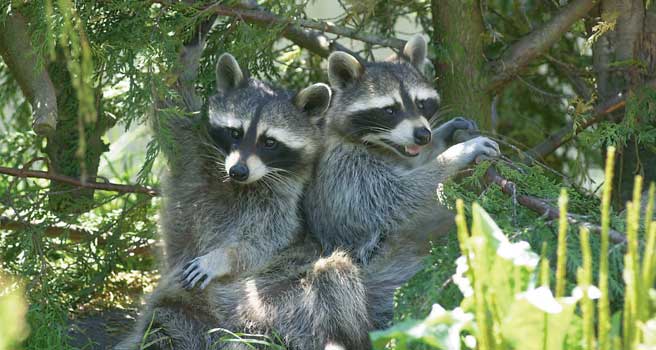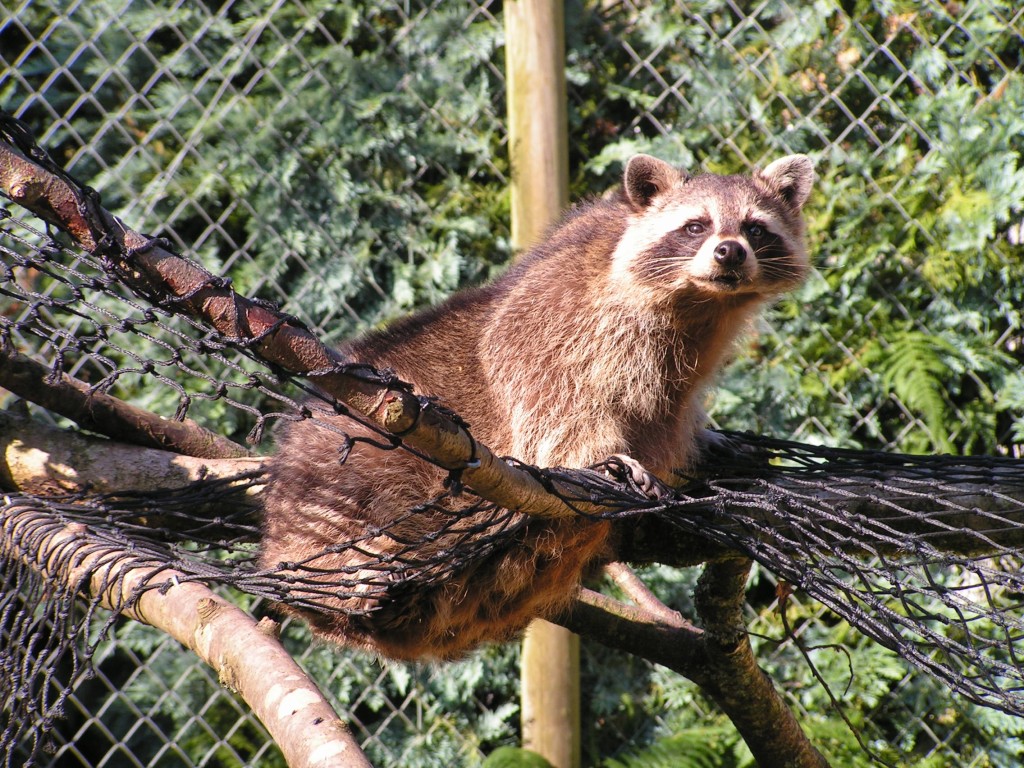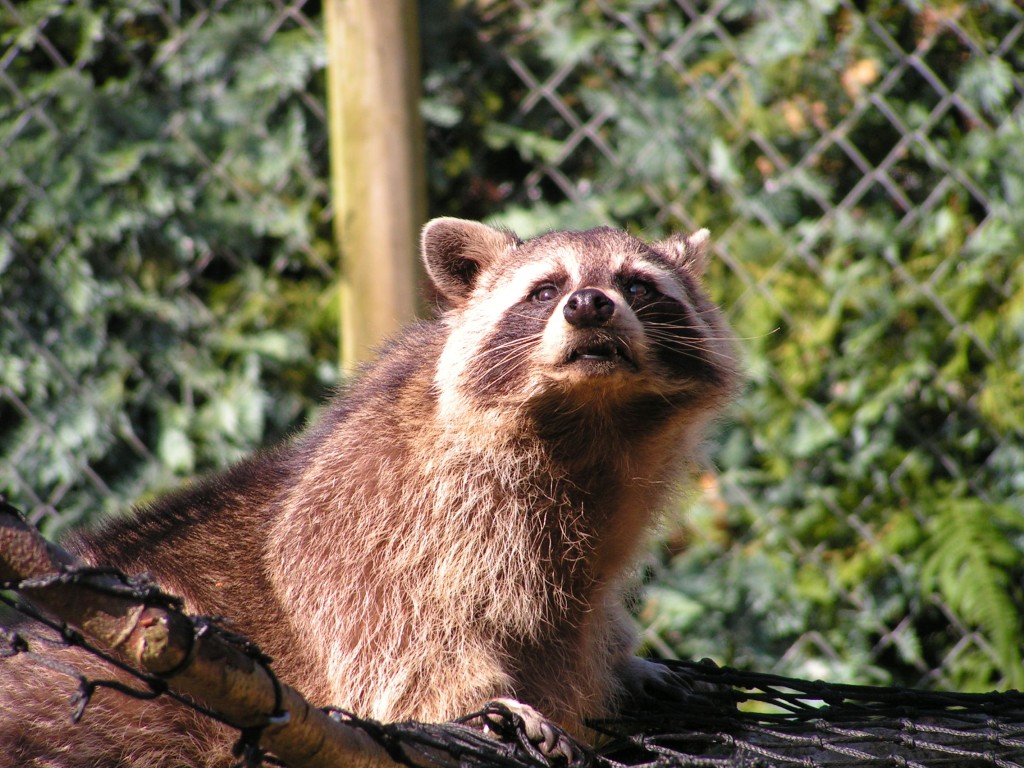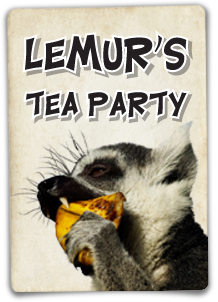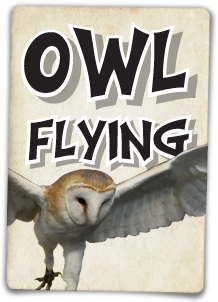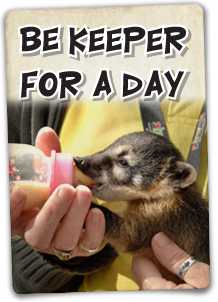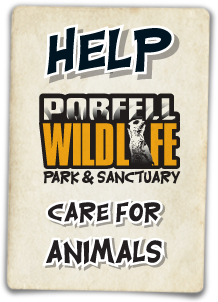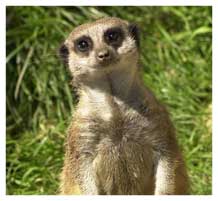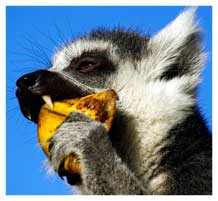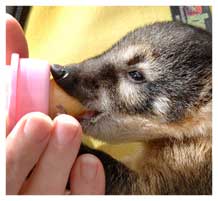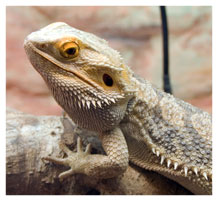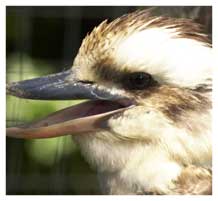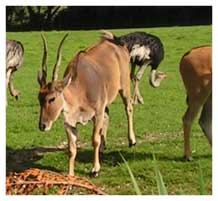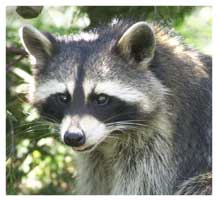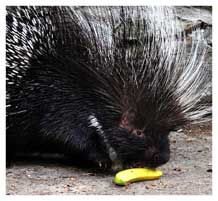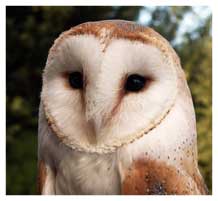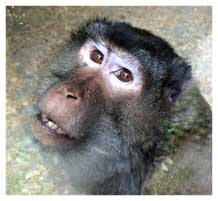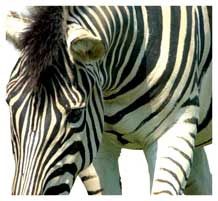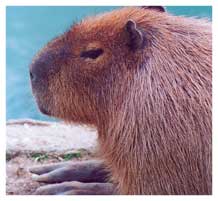Raccoons
Raccoons have an unfair reputation for aggression, which probably comes from the fact that they have a safe zone of around 5-10ft. If a human comes closer, a raccoon will stand up on its hind feet, try to make itself look big and growl/hiss. This is a natural reaction aimed at warning off potential predators and is borne more of fear than fury…
DID YOU KNOW?
Raccoons shimmy down trees backwards then turnaround at the last minute before landing on the ground.
- Conservation Status:
Least Concern - Habitat: Mixed, forests, marshes
- Range: North & Central America, Europe, Caucasus, Japan
- Species at Porfell:
- Lifespan: up to 20 years
- Weight: 3.5 – 9kg
- Kingdom: Animalia
- Phylum: Chordata
- Class: Mammalia
- Order: Carnivora
- Family: Procyonidae
- Genus: Procyon
- Species: P. lotor
